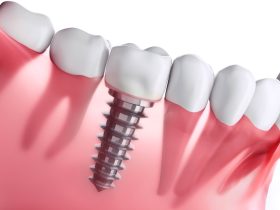Self-harm among teens is a serious and often misunderstood issue. According to a study published by the National Center for Biotechnology Information, 17% of teenagers have self-harmed at some point. This is a concerning statistic and highlights the need for parents to be proactive and informed about how to help their self harm teens.
Self-harm is defined as deliberately hurting oneself without the intention of suicide. This can take many forms, including cutting, burning, hitting, and scratching. It is often seen as a coping mechanism for emotional distress. It can signify that a teenager struggles with mental health issues such as depression, anxiety, or trauma.
If you suspect that your teen is self-harming, it can be overwhelming and scary. However, it is important to remain calm and supportive. Here are three things parents can do to help their teens if they are self-harming.
Empathy and Understanding
It is crucial to approach the situation with empathy and understanding. It is important to remember that your teen is likely going through a lot of emotional turmoil and is using self-harm as a way to cope. It is not helpful to approach the situation with anger or judgment. Instead, try to listen to your teen and understand what is going on in their life that may be contributing to their self-harm.
Ensure your teen knows that you are there for them and want to help them. Encourage open and honest communication, and create a safe and non-judgmental space where your teen can discuss their feelings. Let your teen know that self-harm is not a healthy or sustainable way to cope with their emotions, but also acknowledge that it is a sign that they are struggling and need help.
Seek professional help
Self-harm can indicate underlying mental health issues, and seeking professional help for your teen is essential. This may include therapy, medication, or both. Treatment can teach your teen to learn healthier coping mechanisms and work through the emotions driving their self-harm. Medication may be necessary if your teen struggles with an underlying mental health condition, such as depression or anxiety.
Finding a mental health professional who specializes in working with self-harm teens is essential. They will have experience and expertise in helping teens struggling with self-harm and can provide targeted and effective treatment. You can start by talking to your family doctor, who can provide referrals to mental health professionals in your area.
Create a safety plan
A safety plan is a tool that you can use to help your teen when they are feeling overwhelmed and have the urge to self-harm. A safety plan aims to help your teen identify alternative coping mechanisms they can use when they are feeling distressed.
When creating a safety plan, work with your teen to identify the triggers that may lead to self-harm. These triggers may include specific situations, thoughts, or emotions. Once you have identified the triggers, work with your teen to develop a list of alternative coping mechanisms they can use instead of self-harm. This may include deep breathing, mindfulness, exercise, or creative outlets such as drawing or writing.
It is also essential to have a plan in place for when your teen is feeling overwhelmed and has the urge to self-harm. This may include contacting a trusted friend or family member, using a hotline or crisis service, or going to the emergency room if necessary.
Practice self-care
Supporting a self-harming teen can be emotionally taxing, and parents must also take care of themselves. Ensure you’re taking time for self-care and engaging in activities that help you feel relaxed and rejuvenated. This may include exercise, meditation, spending time with loved ones, or seeking support from a therapist or support group. You’ll be better equipped to support your teen by taking care of your emotional well-being.
Be patient and understanding
Recovery from self-harm is a process, and parents need to be patient and understanding. Your teen may need time to develop healthier coping mechanisms and work through the emotions driving their self-harm. It’s important to acknowledge their progress and celebrate their successes, no matter how small. Additionally, avoid placing blame or getting frustrated if your teen has a setback. Remember that self-harm is a symptom of an underlying issue, and recovery is a journey that requires patience, understanding, and support.
Self-harm is a complex issue that many teens struggle with. It is a sign that they are experiencing emotional distress and need help. If you suspect your teen is self-harming, it’s essential to approach the situation with empathy and understanding, seek professional help, create a safety plan, practice self-care, and be patient and understanding. With the proper support and treatment, self-harm can be overcome, and your teen can develop healthier coping mechanisms to manage their emotions.
As a parent, it’s important to remember that self-harm does not reflect your parenting or your teen’s character. It’s a sign that they are struggling, and it’s essential to approach the situation with love, compassion, and support. If you’re struggling to support your self-harm teen, don’t hesitate to seek help from a mental health professional. They can provide guidance, resources, and support to help you and your teen through this difficult time. Together, we can work to reduce the stigma surrounding self harm in teens and create a world where every teenager feels supported and empowered to overcome their struggles.










